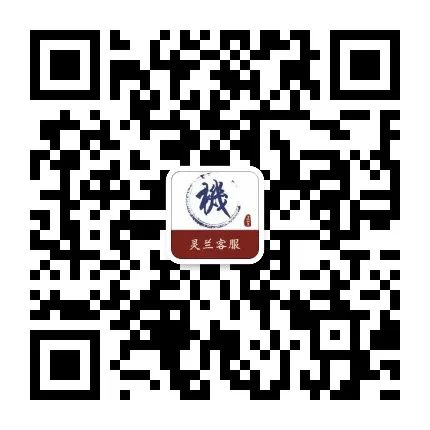
Chinese Medicine Book Club Issue 2505
One issue daily, accompanying the growth of TCM practitioners
Due to changes in the public account’s push mechanism, articles will no longer be displayed in chronological order, so you may not see the articles from the Chinese Medicine Book Club in your timeline.If you wish to see the articles from the Book Club in a timely manner, you can do the following:

IIntroduction:The editor studies “Direct Clinical Insights on the Golden Coffer”IIntroduction:In clinical practice, we often encounter patients with spleen deficiency and damp-heat, and treatments mostly focus on strengthening the spleen and eliminating damp-heat, which may be effective or not. At this time, we may need to rethink and accurately differentiate the syndrome to prescribe the appropriate medication. (Editor/Yunxiao)

Sheng Yang Yi Wei Decoction Elevates Clarity, Reduces Turbidity, and Eliminates Damp-Heat
Author/Gao Jianzhong
When the spleen and stomach are deficient, there is lethargy and a tendency to lie down, the limbs are not retracted, and during the autumn dryness, damp-heat is lessened, leading to weight loss, joint pain, dry mouth and tongue, tastelessness in food, irregular bowel movements, frequent urination, lack of appetite, and poor digestion; additionally, there may be lung issues, chills, and a gloomy disposition, with a pale and unhealthy complexion, indicating that the yang energy is not rising. When the yang is elevated and the qi is replenished, it is called Sheng Yang Yi Wei Decoction.——Li Dongyuan, “On the Differentiation of Internal and External Injuries”Lethargy and a tendency to lie down, with limbs not retracting, indicates deficiency in the spleen and stomach, while dampness is obstructive.If it is summer heat, it may be a case for Qing Shu Yi Qi Decoction. If it is autumn, with damp-heat receding and dryness prevailing, it cannot be a case for Qing Shu Yi Qi Decoction.TCM clinical practice cannot be separated from the “Four Seasons”; there is no standardized TCM that does not consider the seasons, which is inconsistent with TCM clinical practice.One of the key points in clinical differentiation is “harmonization”.Harmonization of the four examinations, pulse and symptoms, disease and symptoms, as well as the relationship between heaven and man, etc. Without “harmonization”, there is no differentiation.The spleen and stomach govern reception, transformation, and the generation of qi and blood, elevating clarity and reducing turbidity.To analyze the state of the spleen and stomach, one should examine three major aspects: diet, bowel and bladder movements, and mental state and complexion.When the spleen and stomach are weak, reception and transformation are insufficient, leading to “tastelessness in food”, “lack of appetite”, and “poor digestion”. If the transformation and elevation of clarity and reduction of turbidity are not functioning, then “irregular bowel movements” and “frequent urination” occur. If qi and blood generation are insufficient, then “lethargy and a tendency to lie down, with limbs not retracting” and “lung issues” may be observed.The lungs govern the skin and hair. Analyzing the state of the lungs, whether the qi mechanism in the skin and hair is functioning normally is a very important aspect.If lung qi is insufficient, it cannot be distributed to the skin and hair, and warmth is insufficient, leading to “chills, gloomy disposition, and an unhealthy complexion”. The reason for insufficient lung qi is the deficiency of spleen and stomach qi, which prevents the yang energy from rising and manifesting outward, hence it is said, “the yang energy is not rising”.Elevation of yang includes making the yang energy “extend” and restoring the qi mechanism of the middle jiao’s elevation and descent. Replenishing qi includes not only tonifying lung qi and stomach qi but also regulating the spleen and stomach.Sheng Yang Yi Wei DecoctionHuang Qi (Astragalus) 2 liang, Ban Xia (Pinellia, washed, used if pulse is tight) 1 liang, Ren Shen (Ginseng, peeled) 1 liang, Gan Cao (Licorice, roasted) 1 liang, Du Huo (Angelica Pubescens) 5 qian, Fang Feng (Siler) 5 qian (used in autumn, hence spicy and warm to dispel), Bai Shao (White Peony) 5 qian (why use Ren Shen, Bai Zhu, and Bai Shao in autumn to tonify the lungs? Because the spleen and stomach are deficient, the lungs are most affected by pathogens, hence tonifying according to the season is easier), Qiang Huo (Notopterygium) 5 qian, Chen Pi (Tangerine Peel) 4 qian, Fu Ling (Poria, do not use if there is frequent urination and no thirst) 3 qian, Chai Hu (Bupleurum) 3 qian, Ze Xie (Alisma) 3 qian, Bai Zhu (Atractylodes) 3 qian, Huang Lian (Coptis) 1 qian.The disease is primarily due to internal injury of the spleen and stomach, and the lung metal is fundamentally deficient. Why is it said that “autumn is strong”? Lung metal deficiency refers to insufficient organ qi, and autumn is strong refers to the current season being autumn. The external autumn corresponds to the internal autumn. When there is deficiency, it is appropriate to tonify, hence the use of Huang Qi, Ren Shen, Bai Zhu, and Bai Shao; when there is excess, it is appropriate to drain, hence the use of Du Huo, Fang Feng, Qiang Huo, and Chai Hu.Autumn governs descent, and “autumn is strong” indicates excessive autumn descent. The treatment uses spring elevating herbs to address the excessive autumn descent, hence Du Huo and Fang Feng are used to “drain” the excess.Tonifying according to the season is based on internal injury and deficiency, such as tonifying the liver in spring and the lungs in autumn, etc.From the analysis of the composition of the herbs, Sheng Yang Yi Wei Decoction is composed of the middle tonifying qi decoction with the addition of Ban Xia, Fu Ling, Du Huo, Fang Feng, Qiang Huo, Bai Shao, Ze Xie, and Huang Lian.The added herbs can actually be divided into two groups: one group is for elevating clarity, Du Huo, Fang Feng, Qiang Huo; the other group is for reducing turbidity, Ban Xia, Fu Ling, Bai Shao, Ze Xie, Huang Lian.The combination of these two groups of herbs serves to elevate clarity and reduce turbidity while also treating damp-heat, specifically targeting the previously mentioned “damp-heat lessening”. “Lessening” does not mean “completely gone”.This formula primarily addresseslung and spleen qi deficiency, damp-heat stagnation, and dysfunction of the middle jiao’s elevation and descent.This formula can also be seen as a modification of the Six Gentlemen Decoction with the addition of Huang Qi, Du Huo, Fang Feng, Qiang Huo, Chai Hu, Bai Shao, Ze Xie, and Huang Lian.The difference between this formula and the Six Gentlemen Decoction is that it adds herbs to restore the elevation and descent of qi.Fei Boxiong in “On Medical Formulas” mentioned the following regarding Sheng Yang Yi Wei Decoction: “Dongyuan discusses hunger, satiety, and labor, where yang is trapped in yin, the face is yellow, qi is weak, and there is fever; one should elevate the yang qi with sweet and warm herbs. This is truly insightful and opens a major pathway for treating yang deficiency and fever. However, if the formula includes Sheng and Chai, it may exacerbate the condition of excess above and deficiency below, leading to more shortness of breath and fullness. In Dongyuan, one must be able to discern and treat according to the disease. If later generations rigidly adhere to this method and apply it universally, it would lead to significant errors.”This passage comes from clinical practice, and it is not uncommon for those who study Dongyuan to mislead others. However, reading this passage always feels somewhat inappropriate. Firstly, Dongyuan’s use of Sheng and Chai is not for treating fever. The combination of Du Huo, Fang Feng, Chai Hu, and Qiang Huo in Sheng Yang Yi Wei Decoction is not designed for treating fever; secondly, there has never been a single method in TCM clinical practice that can be rigidly applied universally.Learning from Dongyuan is the same as learning from others.
Recommended Reading
1. Can Sheng Yang Yi Wei Decoction also treat rheumatoid arthritis?
2. The human body is like a room; Sheng Yang Yi Wei Decoction makes it spacious and bright.
|
I Copyright Statement
I Submission Email [email protected] |
【Gao Jianzhong Dongyuan Academic Exchange Group】
In TCM clinical practice, there has never been a single method that can be universally applied; only through continuous thinking and exploration can one better understand the profound medical principles behind Dongyuan’s prescriptions.
Welcome to join the 【Linglan·Gao Jianzhong Dongyuan Academic Exchange Group】, to read Dongyuan together and clarify medical principles.
This group is a free study group. During the checkpoint study, you can recite《On the Differentiation of Internal and External Injuries》 with many physicians. Additionally, every Tuesday and Thursday, we will publish Gao Jianzhong’s interpretations of Dongyuan’s thoughts, and participants can leave comments on the post-study questions to share insights.
Participation Method: If you already have Linglan customer service WeChat, you can directly send“Gao Jianzhong” to customer service; if you have not added Linglan customer service, you can long-press to recognize the QR code below, reply “1”, and we will invite everyone to join the group at a unified time.

Linglan Customer Service – Lingji (llanshy02)

